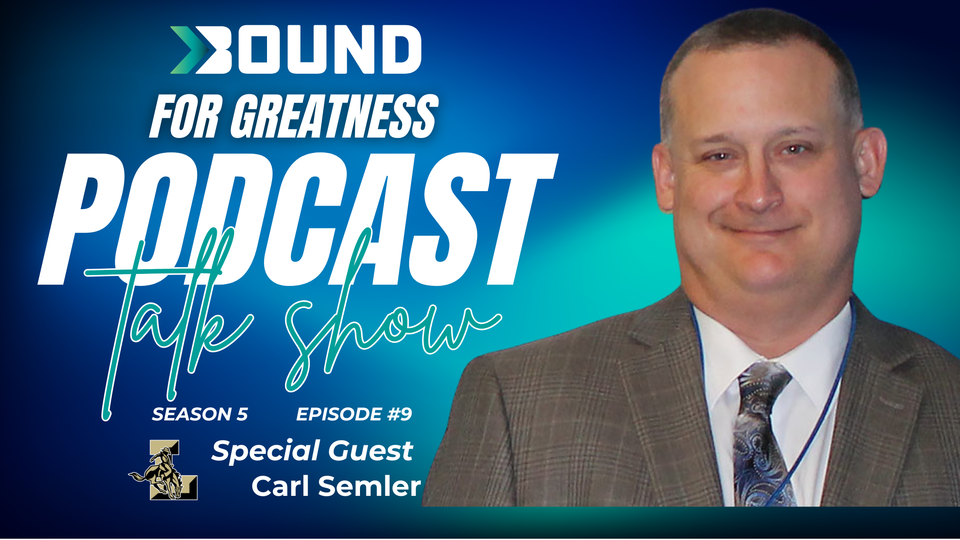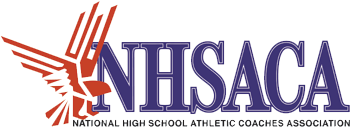Bridging the Generations: Coach Carl Semler’s Mission to Mentor Across Generations

By Scott Garvis C.M.A.A.
In a world where generational gaps often turn into generational chasms, Carl Semler is building bridges.
At Lubbock High School in Texas, where football runs deep and leadership runs deeper, Semler is not only coaching athletes—he’s mentoring the mentors. A veteran educator, coach, and now published author, Semler is on a mission to help Gen X leaders connect with the Gen Z students and coaches reshaping the culture of school-based athletics.
His story, captured on the Bound for Greatness podcast hosted by Scott Jarvis, is both deeply personal and urgently relevant. With clarity, humility, and a Texas-sized dose of practical wisdom, Semler lays out what it means to lead in a world that’s rapidly changing—but still rooted in timeless principles.
“We live in a microwave society,” Semler says. “Gen Z wants faster results and bigger returns. But leadership? It’s a slow-cooked dish. And it starts by listening.”
The Book, the Message, and the Moment
Semler’s newest endeavor is a collaborative book titled The Path for Coaches, spearheaded by leadership guru Chip Baker. Alongside his head coach, Juan Rodriguez, Semler contributed a chapter titled Gen X Mentoring in a Gen Z World—a playbook for navigating generational differences in leadership, communication, and culture.
“As Gen Xers, we were raised on standards. We knew the what and the how. Gen Z wants to know the why—and that’s not a bad thing. It just means we have to teach differently.”
The book emerged from a growing concern among veteran coaches: that the wisdom of decades in education-based athletics was at risk of fading, not from irrelevance, but from a lack of translation. For Semler, the answer was simple but profound—bridge the gap by building trust.
The Why War
Perhaps no issue defines the generational divide more than the infamous “Why?” Semler laughs when recalling the questions he fields from younger coaches and players.
“Why do I have to do laundry? Why do I have to stripe the field? Why do we spend three hours game planning?”
But instead of scoffing, Semler listens—and responds.
“They’re not being disrespectful. They’re just wired for context. It’s not about rebellion. It’s about relevance.”
Still, that doesn’t mean standards go out the window.
“These aren’t just tasks. They’re traditions. They’re part of the profession. And when we explain the ‘why,’ we create buy-in without compromising expectations.”
Mentoring From the Middle
With his own son now coaching on staff at Lubbock High, Semler has a front-row seat to the generational dialogue playing out on the sidelines.
“We’ve had some of our best conversations just debating what it really means to ‘ride for the brand.’ That’s our motto. It means showing up with pride, honoring our history, and always doing things the right way.”
For Semler, honoring tradition doesn’t mean rejecting innovation. In fact, it means teaching younger coaches how to integrate new ideas into an existing standard of excellence.
“I’ve had to rethink a lot, especially with scouting. We used to go in person, break down every play. Now it’s all on Hudl. But watching on a screen doesn’t tell you everything. Sometimes, the wind shifts during a game. Sometimes, you need to feel the atmosphere. That’s why context matters.”
Ego, Empathy, and Evolution
Perhaps the most powerful insight Semler shares is this: bridging generational gaps starts with checking your ego.
“Gen Xers, we need to admit we don’t have all the answers. Gen Z brings a ton of value. New ideas. Different perspectives. And if we’re smart, we’ll listen.”
He’s quick to point out that Gen Z isn’t soft—they’re expressive. Where Gen Xers might bury their feelings, Gen Z is more likely to put them on the table. That shift can feel jarring, but it’s also an opportunity.
“It’s not about coddling. It’s about communicating. If a kid says, ‘I’m struggling,’ the answer isn’t, ‘suck it up.’ It’s, ‘how can I help?’ That small shift can build a relationship that lasts.”
Hurricane Heroes
One of Semler’s most poignant stories comes from his days coaching in Houston during Hurricane Harvey. When the storm devastated his school’s attendance zone, it wasn’t the veterans who sprang into action—it was the millennials and Gen Z coaches.
“One of our coaches grabbed a boat that floated by his house. They started pulling kids and families out of flooded homes. Another coach organized a supply drop. I just stepped back and let them lead.”
When the National Guard arrived, they asked who was in charge.
“I told them: ‘If they’re not breaking laws and they’re saving lives, let them do what they’re doing.’ That’s generational leadership in action—wisdom meets willpower.”
Listening as Leadership
In the end, Semler boils it all down to one word: listen.
“It’s the most powerful thing we can do. Listen before you lead. And don’t ask, ‘What do you want from me?’ Ask, ‘What do you need from me?’ That’s where growth happens.”
A Texas Legacy
Now in his seventh year as AD and 11th year at Lubbock High, Semler is seeing the fruits of his leadership. Over half his coaching staff are former student-athletes—proof that culture, once built, can sustain itself across generations.
“That’s what I’m proudest of,” he says. “Seeing our kids come back and give back. That’s how you know the work mattered.”
And while he jokes about his age and the “gray hair under the headset,” make no mistake—Carl Semler is still very much in the game. Not just coaching players. Not just guiding coaches. But mentoring a movement.
“Leadership isn’t about being right. It’s about being real. Be curious. Be humble. Stay connected. That’s how we stay bound for greatness.”

Member discussion